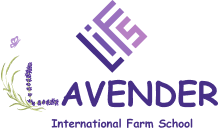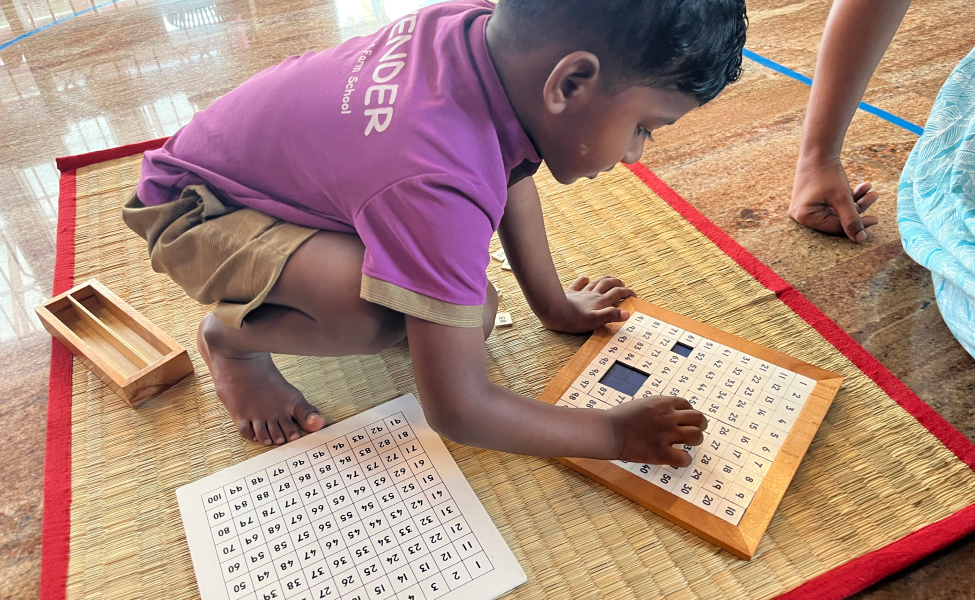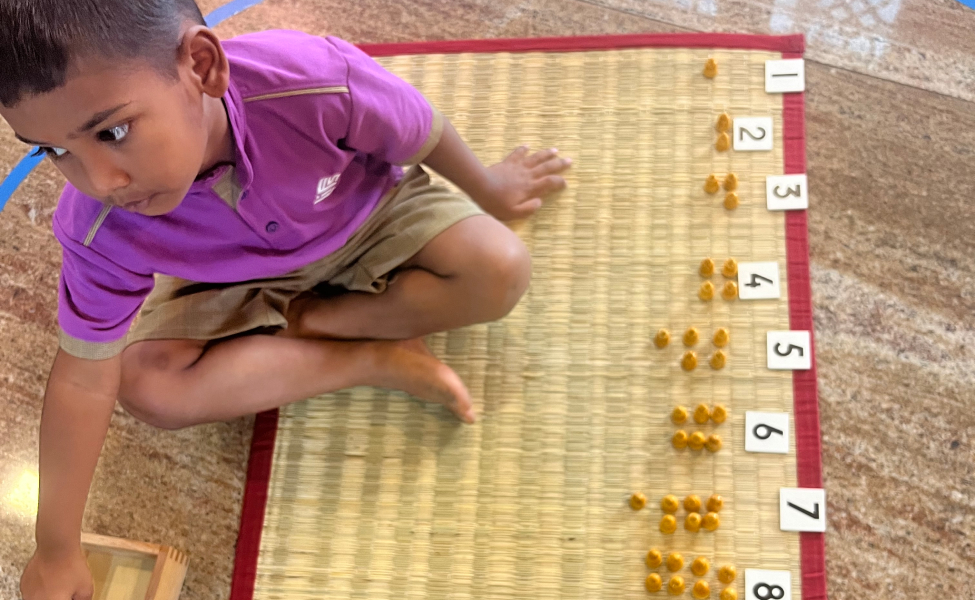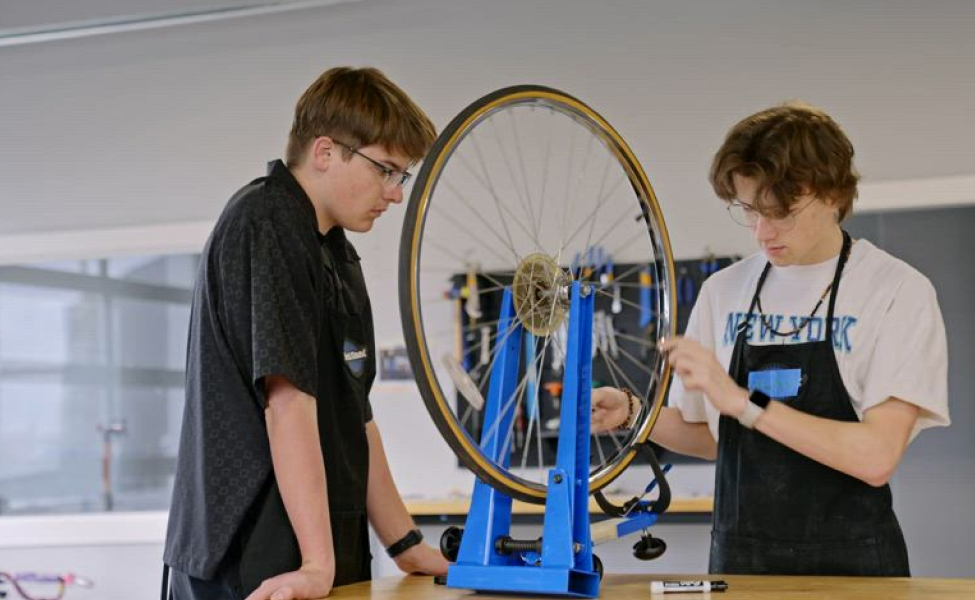What is Montessori Education?
Montessori education is a child-centered approach developed by Dr. Maria Montessori in the early 20th century. It emphasizes hands-on learning, self-directed activity, and collaborative play. The goal is to nurture each child’s natural desire to learn and provide them with the tools to explore the world at their own pace. Montessori education focuses on several core principles:
- Respect for the Child: Each child is respected as an individual with unique interests and developmental timelines.
- Prepared Environment: The learning environment is carefully designed to offer order, beauty, and accessibility to children.
- Self-Directed Learning: Children are encouraged to follow their interests and choose activities that appeal to them.
- Hands-On Learning: Learning through experience is emphasized, allowing children to engage all their senses.
Montessori Activities for Toddlers
Practical Life Skills
Practical life activities are a cornerstone of Montessori education. These activities help toddlers develop fine motor skills, coordination, and independence. Examples include:
- Pouring Water: Using small pitchers and cups, toddlers practice pouring water from one container to another.
- Buttoning and Zipping: Children learn to button shirts or zip jackets, enhancing their dexterity and self-care skills.
- Sweeping and Dusting: Simple cleaning tasks teach responsibility and respect for the environment.
Sensorial Activities
Sensorial activities help toddlers refine their senses and understand the world around them. These activities focus on:
- Color Sorting: Using colored objects or cards, toddlers practice sorting items by color.
- Texture Exploration: Children explore different textures using fabric swatches, sandpaper, or sensory bins filled with materials like rice or beans.
- Sound Matching: Toddlers match sound cylinders or musical instruments, enhancing their auditory discrimination skills.
Language and Math
Montessori education introduces language and math concepts in a natural and engaging way. Activities include:
- Object Naming and Matching: Toddlers expand their vocabulary by matching objects to their corresponding names.
- Counting and Sorting: Using counting beads or blocks, children learn to count and sort objects by size, shape, or number.
- Storytelling and Reading: Reading aloud and storytelling help develop language skills and foster a love for books.
The Importance of a Montessori Bookshelf for Toddlers
A Montessori bookshelf is a key component of a prepared environment. Unlike traditional bookshelves, Montessori bookshelves are designed to be accessible to toddlers. Here’s why they matter:
- Child-Accessible: Low, open shelves allow toddlers to easily reach and select books on their own, promoting independence and decision-making.
- Order and Simplicity: A clutter-free bookshelf with a few carefully selected books encourages focus and concentration.
- Rotating Selection: Regularly rotating books keeps the selection fresh and engaging, sparking curiosity and interest.
Montessori Toys for Toddlers
Montessori toys are carefully chosen to support a child’s development and exploration. These toys are typically made from natural materials and are designed to be simple yet stimulating. Here are some popular Montessori toys for toddlers:
- Stacking and Nesting Toys: These toys help develop hand-eye coordination and spatial awareness.
- Shape Sorters: Encouraging problem-solving skills, shape sorters help toddlers learn about geometry and categorization.
- Musical Instruments: Simple instruments like drums, xylophones, or maracas promote auditory development and a sense of rhythm.
Introducing Montessori Kitchen Tools for Toddlers
Incorporating Montessori principles into the kitchen is a wonderful way to engage toddlers in practical life activities. Montessori kitchen tools are child-sized and designed for safe use. Here are some examples:
- Child-Safe Knives: These knives allow toddlers to safely practice cutting soft fruits and vegetables.
- Mixing Bowls and Utensils: Child-sized bowls and utensils enable toddlers to participate in mixing and stirring tasks.
- Pouring Tools: Small pitchers and measuring cups help toddlers practice pouring liquids or dry ingredients.
Setting Up a Montessori Environment at Home
Creating a Montessori-inspired environment at home doesn’t require a complete overhaul. By making a few key adjustments, you can provide your toddler with a space that encourages exploration and learning. Consider the following tips:
Child-Sized Furniture
Opt for child-sized tables, chairs, and shelves that are within your toddler’s reach. This allows them to interact with their environment comfortably and independently.
Declutter and Organize
Keep the play area organized and free of clutter. Use baskets or trays to organize toys and materials, making it easy for your toddler to choose and return items.
Encourage Exploration
Provide a variety of activities and materials that cater to your toddler’s interests. Rotate toys and activities regularly to maintain their curiosity and engagement.
The Benefits of Montessori for Toddlers
Montessori education offers numerous benefits for toddlers, including:
- Independence: Toddlers develop a sense of autonomy and confidence as they learn to do things for themselves.
- Focus and Concentration: Engaging activities encourage sustained attention and concentration.
- Problem-Solving Skills: Montessori activities promote critical thinking and problem-solving abilities.
- Social Skills: Collaborative play and group activities foster social interaction and empathy.
Conclusion
Montessori education for toddlers provides a nurturing and stimulating environment that encourages independence, creativity, and a lifelong love of learning. By incorporating Montessori principles at home, you can support your toddler’s development and create a foundation for future success. Whether it’s through practical life activities, engaging toys, or a well-organized environment, the Montessori approach offers a holistic way to foster your child’s growth and exploration.
Incorporating Montessori education into your toddler’s life is a rewarding journey that both you and your child can enjoy. By following these guidelines and embracing the Montessori philosophy, you’ll be well on your way to supporting your toddler’s development in meaningful and impactful ways.




